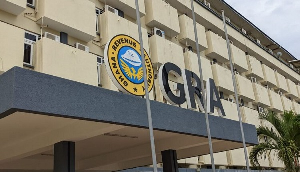Accra, Sept. 22, GNA - The National Labour Commission (NLC) on Friday expressed regret that the Labour Act was being flouted with impunity and asked all parties to abide by the law for industrial harmony.
"It is sad to note that the very people who saw the need for a new labour law and therefore engaged in consultations for over 10 yrs to come out with the Labour Act, 2003, Act 651, are often seen flouting the law with impunity," Mr Joseph A. Aryitey, Chairman of the NLC said in a statement in Accra.
He said it was disheartening to see that during industrial disagreements, parties failed to observe the due processes in the settlement of their disputes.
"Often, employers engage in negotiations with striking workers, and this has happened on a number of occasions, especially, on the part of government as an employer.
"The law has stated that when negotiation is ongoing, a party shall not resort to a strike or lockout. This situation does not augur well for Ghana's industrial relations practice and it also undermines the commitment of the social partners to the very law that they clamoured for."
The statement said the law further stated that there should not be intimidations or threats from either side during the time when negotiations were ongoing.
"It is therefore expected that when one party has embarked on an industrial action, as soon as the parties agree to go to the negotiating table, that action should be 'called off' and not 'suspended' as is usually referred to in some circles," it said.
It also told workers there were procedures to be followed before embarking on any industrial action.
"Under Act 651 and the National Labour Commission's Regulations 2006, Legislative Instrument (L.I.) 1822, the Dispute Settlement Procedures are clearly spelt out.
"It is desirable that all the parties in employment relationship will endeavour to abide by these procedures in times of industrial disagreements, calculate the long-term effect of negative acts by the employer or employee and not take unilateral actions that affect the undertaking."
The NLC said for the effective management of inherent conflict in industrial relations, during the times of negotiations, representatives of the parties would be persons with the "appropriate mandate" whose decisions would not be questionable or subject to review by a higher authority.
"Organisations are therefore encouraged to engage qualified Industrial Relations Personnel or train their Human Resource Personnel in Industrial Relations and the labour laws, so that they can respond to the current needs in labour-management relationship.
"Let all sides cherish the rule of law as a vehicle for development and wealth creation and not apathy to genuine demands or outrageous demands from employers.
"Any action taken in contravention of the law might bring immediate relief, but cannot stand the test of time because of its ad hoc nature." The NLC said in order for the law to succeed, it would be important for defaulting parties to be treated in accordance with the law, or offending parties to seek remedies under the law.
The NLC was established on the 6th April, 2005, among others to adjudicate and settle industrial disputes and to promote a peaceful and harmonious industrial relations environment for development, growth and wealth creation. 22 Sept. 06
General News of Saturday, 23 September 2006
Source: GNA












